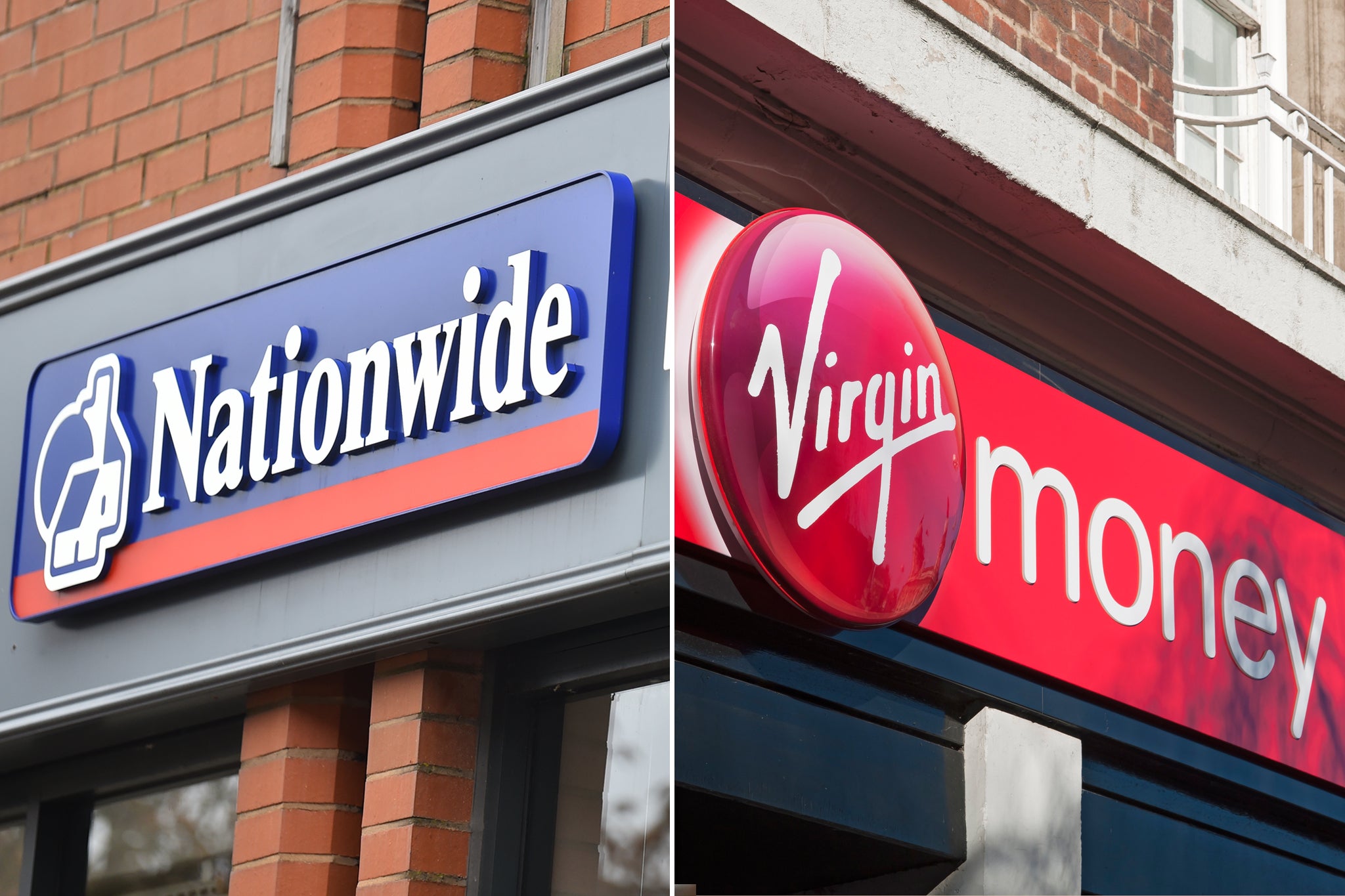Who wins from Nationwide’s £2.9bn takeover of Virgin Money?
Swallowing up a challenger bank – at a bargain price – will strengthen the building society’s presence in current accounts, credit cards and unsecured loans, says James Moore


Nationwide’s £2.9bn tilt at Virgin Money brings the Northern Rock saga full circle.
The one-time building society – which demutualised as a bank, only to have queues outside its branches at the beginning of the devastating financial crisis of 2007/08 – will, if this deal goes through, become a building society again. Or at least, the good part of it. (The government had to split it into a “good” and a “bad” bank to get it sold after rescuing the business from collapse; Virgin Money bought the latter.)
But will the deal actually go through? There’s a fair chance it will.
The customer-owned Nationwide’s 220p-a-share cash proposal – to be funded from its existing resources – is not exactly generous. It is at a 38 per cent premium to Virgin’s close, prior to the announcement – 40 per cent when compared to the three-month average price. However, the price is also less than two-thirds of group’s “book” value – its assets less its liabilities.
Why would Virgin shareholders accept such a cheap proposal? Well, the business last approached that sort of valuation at the end of 2021, when the UK was still shrugging off its pandemic hangover. Since that time, it has been a dog. The other UK banks haven’t exactly been stellar investments since then – but Virgin has been looking up at them with sad eyes.
When a potential offer like this rolls in, there is inevitably speculation about the possibility of rivals coming in to trump it. This seems unlikely. Regulators would probably take a dim view of one of the traditional Big Four (Barclays, NatWest, Lloyds, HSBC) attempting to spoil the party. As for overseas interest? Well, Virgin’s investors can always dream.
Their shares were trading at a discount to the potential price (there are still Is to be dotted and Ts to be crossed, so we can’t officially call it an offer as of yet) in the aftermath of the pair’s joint announcement. That tells you the City thinks this will get done, and there will be no bid battle to entertain us.
Where does this leave the consumer? Back when the global financial crisis ended, the government said it wanted to see a host of new challengers to take on the Big Four. They hoped these new competitors would force them to clean up their acts and lead to better outcomes for the likes of you and me.
Trouble is, banking is a business that favours scale. Even with regulatory concessions designed to give them a helping hand, many of the challengers have found themselves struggling at one time or another.
TSB, spun out of Lloyds as the price of its £20bn government bailout in 2009, was gobbled up by Spain’s Sabadell. An ugly scandal followed after the botched attempt to move it onto the latter’s IT platform led to customers being locked out of their accounts.
Metro Bank – with its seven-day opening, free dog biscuits and lavish opening parties – saw its share price crashing after an accounting scandal it is still trying to draw a line under.
The attempt to spin Williams & Glyn’s, a business-focused bank, out of RBS fell to bits. The Financial Conduct Authority has also raised concerns over the adequacy of challenger banks’ defences against financial crime.
True, digital darling Monzo is bucking the trend and preparing for a fresh crack at the US after a successful funding round. The fintech banking businesses have been making a little noise. But the overall picture isn’t pretty.
A fattened-up Nationwide, with an enhanced position in current accounts, credit cards and the like, is actually a much better bet when it comes to keeping the big banks honest.
One has to be careful not to look at customer-owned mutuals with overly starry eyes. They ought to be a thoroughly good thing. In practice, it hasn’t always worked out like that. Even Nationwide has incurred fines in the past, and its hard-charging CEO Debbie Crosbie’s pay package – £3.5m for her first 10 months – raised more than a few eyebrows.
But I’ve previously spoken to regulators who recognise that the society is an important competitive force in UK financial services. It can do things other banks can’t, such as intentionally making less money when times are tough to offer a better deal for its consumers. This it has done in the past.
It also recently regained its title as the Which? “recommended provider” following the consumer group’s annual survey.
Consolidation is not usually a good thing for consumers. But if Crosbie’s Nationwide keeps its focus on its owners – the customers who save with the society and borrow from it – they will be the biggest winners, assuming Virgin’s shareholders back the deal. I suspect that they will.






Join our commenting forum
Join thought-provoking conversations, follow other Independent readers and see their replies
Comments